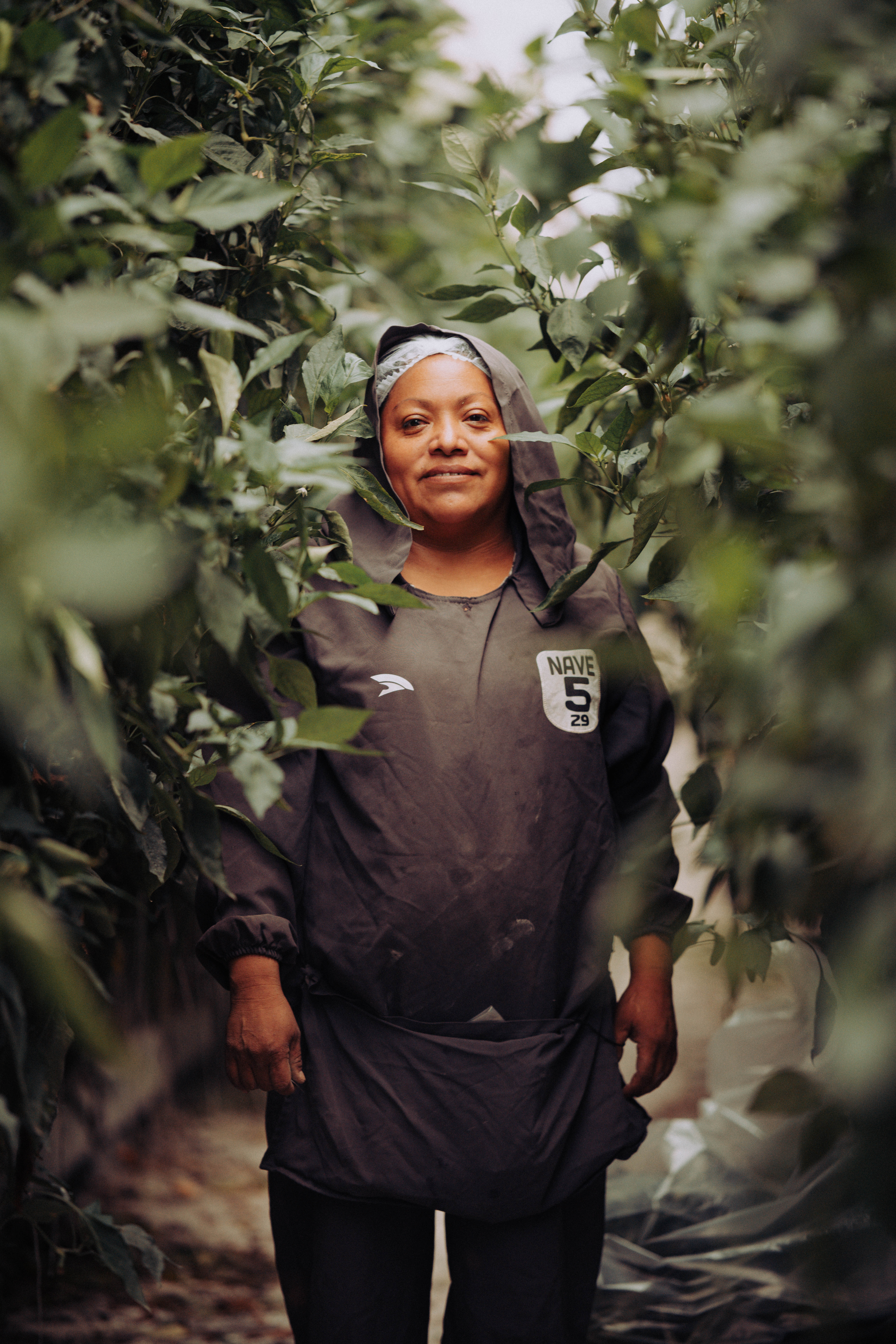Improving OSH In The Tomato and Chili Peppers Supply Chains
In 2021, the Fund expanded its field operations in Mexico, hitherto focused on the coffee supply chain, to include OSH improvement actions in the chili and tomato supply chains. The project is initially focusing its work on the state of Jalisco. Actions have been included to prevent and mitigate the effects of COVID-19, and also to particularly reach women and vulnerable workers. The selection of these supply chains was based on extensive discussions between government, employers’ and workers’ organizations, guided by the Vision Zero Fund’s chain selection criteria.



Mexico is among the world’s leading producers of chili peppers and tomatoes.
Production of both crops has increased as a result of trade advantages and growing demand in trading partner countries, especially in North America. Chili peppers from Mexico accounts for 78 percent of total U.S. chili imports and 55.4 percent in Canada. Tomatoes destined for the U.S. market account for 90 percent of the product in the U.S. and those destined for Canada account for 65 percent.
Thousands of Mexican workers, including regional agricultural day laborers, women and men, depend on these products for their livelihoods.
The activities are carried out under different cultivation methods, both in protected agriculture and in the open air, which implies different practices that affect the safety and health of the workers in different ways.
COVID-19 has increased OSH risks among agricultural workers due to the existence of different social and work environment conditions that hinder the observance of different prevention and mitigation measures (e.g., physical distancing, frequent hand hygiene or symptomatology monitoring). Also, that hinder timely and quality care in the critical phase or stage of the disease. Considering the context, the objective of this project is to contribute to the improvement of occupational safety and health (OSH) in the chili bell pepper and tomato supply chains, with a focus on the state of Jalisco, paying special attention to the impacts of COVID-19, agricultural workers, migrant workers and those in vulnerable situations.
On July, 2023 the project begun a field research on climate change-induced heat stress among greenhouse workers in the tomato and chili bell pepper sectors, to analyse the link between climate change, rising temperatures and safety and health at work. In partnership with the Center for Health, Work & Environment (CHWE) at the University of Colorado and the Mexican Institute of Social Security, our goal is to develop, implement and evaluate workplace measures to reduce heat stress.
78%
of total U.S.
chili imports
are from Mexico
INTERVENTIONS
- Governments, employers’ and workers’ organizations, and other key stakeholders in targeted supply chains are better able to develop and implement sector-specific response to the impacts of COVID-19
- Increased protection of workers from COVID-19
- Timely dissemination of good practices undertaken by governments, employers’ and workers’ organizations, and other key actors in selected supply chains at the community level to address the risks and impacts of COVID-19
- Reducing deficits in the implementation of OSH standards for workers and employers
- Strengthening legal and regulatory frameworks on OSH protection, prevention and inspection in the selected sectors
Expected Results
- Improved prevention and mitigation of COVID-19 in the chili pepper and tomato supply chains in Mexico
- Evidence-based action to mitigate the effects of climate change induced heat stress
- Improved compliance with OSH laws and policies in the chili and tomato supply chains in Mexico
Implementation updates
- Implementation status report (as of July 2024)
- Newsletter November – December 2024 (in Spanish)
- Newsletter September – October 2024 (in Spanish)
- Newsletter June – August 2024 (in Spanish)
- Newsletter March – June 2024 (in Spanish)
- Newsletter January – February 2024 (in Spanish)
Please be aware that some publications are available only in Spanish. To access them, please switch the website language using the toggle at the top of your screen.
Funding is provided by the United States Department of Labor under cooperative agreement number IL-35872-20-75-K-. 100 % percentage of the total costs of the project or program is financed with USG federal funds, for a total of 6.15 million dollars. This material does not necessarily reflect the views or policies of the United States Department of Labor, nor does mention of trade names, commercial products, or organizations imply endorsement by the United States Government.

